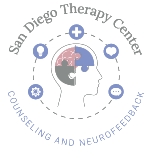Consequences of Poor Processing Speed
Processing Speed, described by Alice Kassotaki, Speech Language Pathologist MSc, BSc, “refers to the rate at which information travels across the brain. It involves the function of processing information automatically, quickly and unconsciously. It relates to the ability to complete simple, repeated cognitive tasks. Poor processing speed can be seen during the task, not during the initial learning stage. Since processing speed is done unconsciously, slow processing speed is connected with a reduced ability to perform an assignment automatically. Cognitive processing speed, affecting attention, executive tasks, memory, academic performance, and behavioral and social skills, increases through childhood and adolescents. Processing speed can be caused by motor skills, insufficient sleep, working memory, ADHD and more.

For those who suffer with slow processing speed, may struggle with performance problems in school and adulthood. Although these people know how to complete the task, it may take a few more steps compared to others. It is important to respond to these signs and support your child so that problems don’t impact the rest of their lives.
Processing speed tasks:
- comparing or scanning visual information such as letters, words, numbers, symbols, patterns or pictures, for similarities or differences;
- performing basic arithmetic;
- reading and comprehending words and texts;
- writing words or dictation;
- copying from the board or from a text;
- doing things in the correct order;
- starting and finishing work in class;
- starting and finishing an activity;
- learning routines;
- relating to others;
- completing tests;
Neurofeedback is able to help children, teenagers, and adults who have slow processing speed. If your processing speed has not improved enough to meet your goals, your brain may need some training. Neurofeedback can train your brain to regulate, stabilize and focus itself so you’re able to concentrate better on your tasks or follow directions that are given to you.
Contact us for more information on how Neurofeedback can help you and your family find the focus you need to function at your best.
-Written by Allison Parker and Tanya L. Hilber, PsyD
Reference: Kassotaki, Alice. “Consequences of Poor Processing Speed.” Upbility, Ikid Private Company.



